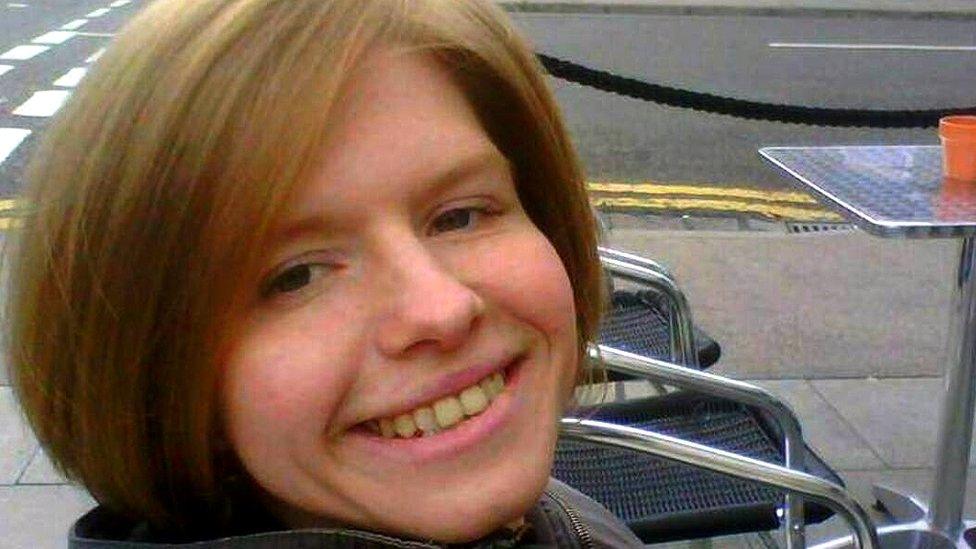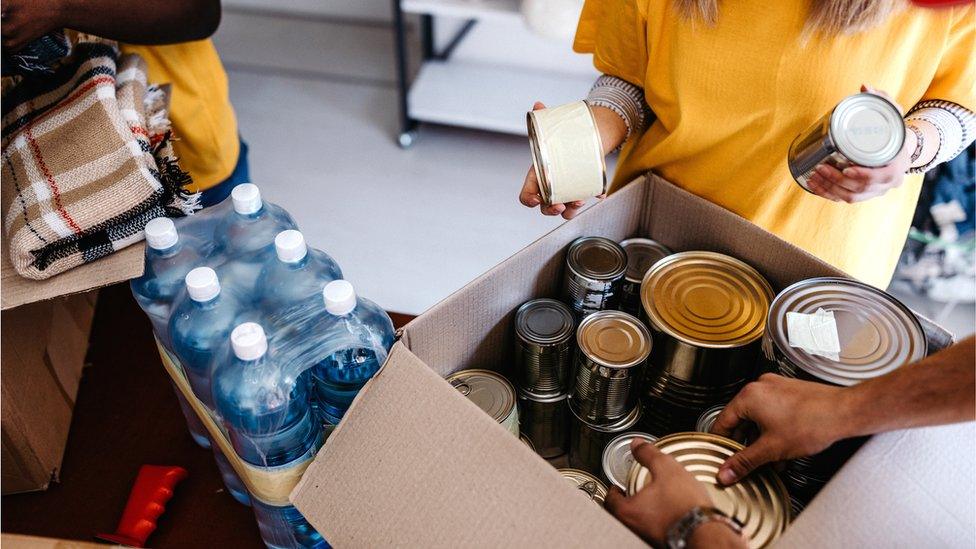Food banks: 'I had to substitute heating for eating'
- Published

Shauna Gauntlett had no safety net after the company she worked for experienced financial difficulties
Shauna Gauntlett was a care assistant in Dundee when the company she worked for went through financial troubles.
In the run up to Christmas, the company cut her hours, leaving her unable to pay for food or her bills.
"I should be able to have enough money to feed myself while being in work," Shauna said.
But with no savings or safety net the reduced income meant she had to visit a food bank in Dundee.
A three-year study, focusing on more than 1,000 food-bank users across the UK was commissioned by the Trussell Trust,, external and conducted by Edinburgh's Heriot-Watt University.
Its first annual report indentifies three key elements that leave people "no protection from hunger and poverty":
problems with the benefits system
ill-health and challenging life experiences
too little local support
It said that 94% of people using food banks are "destitute", which means they can't afford a number of essentials such as heating, clothing, toiletries and shelter.
Prof Glen Bramley, who conducted the research, told BBC Radio's Good Morning Scotland: "Our research shows decisively the people using food banks are incredibly poor."
Ms Gauntlett, who has two young children, was working on a zero-hours contract when the company went through financial difficulties.
"I didn't know what hours I was supposed to be working from week to week," she said. "That led me to end up not having enough to pay all my bills. So I had to substitute heating for eating."
The study suggests that nearly 75% of food bank users are from homes affected by illness or disability, with an average weekly income of only £50 after rent.
Accessing local support was highlighted by the report as a way for people to get help in periods of crisis.
Ms Gauntlett said attending the food bank in Dundee was a turning point.
Not only did they offer her food, they helped her set up her electricity meter at home, she said.
"They did an amazing job. I was very grateful for that because I needed to be able to cook the food that I was going to get from them," Ms Gauntlett said.

Over 22% of people at food banks are single parents
Addressing the gap in services
Kyle McCormick is a project manager at the Glasgow North West food bank, which took part in the research.
He said issues with benefits and a lack of support had contributed to the rising need for food banks.
"It is really alarming, especially here in Scotland, and you can be only just one pay cheque away from needing to go to a food bank," he said.
Mr McCormick wants organisations on the frontline of addressing poverty to coordinate better.
"It's about addressing the gap in the services that are provided at the moment," he said.